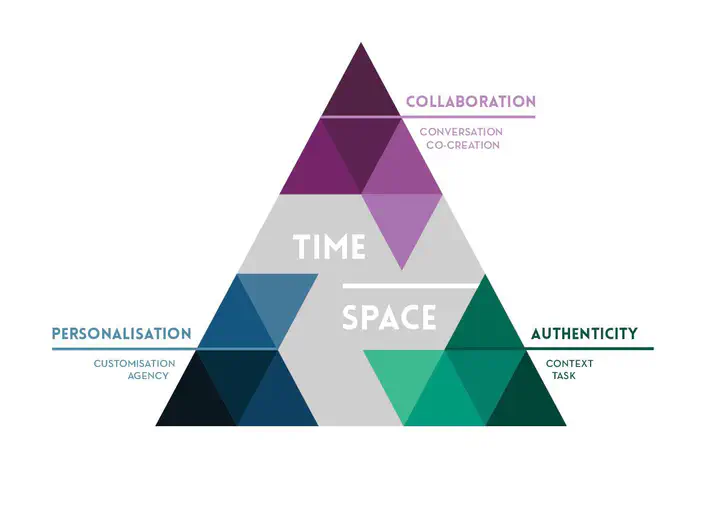Mobile Pedagogies
 The current iPAC Framework. From Kearney, Burke & Schuck (2019), p.754
The current iPAC Framework. From Kearney, Burke & Schuck (2019), p.754The iPAC Framework highlights three approaches that are distinctive to mobile learning: Personalisation, Authenticity and Collaboration (or ‘PAC’). How learners experience these signature mobile pedagogies is influenced by how they exploit a more flexible ‘time-space’ (or context) when learning with mobile devices. The framework is underpinned by sociocultural theory and was originally developed by academics at UTS, Australia and the University of Hull, UK (Kearney, Schuck, Burden & Aubusson, 2012).
For an introduction to the iPAC Framework, please watch the following brief video. For more detailed explanations of iPAC, and illustrations from school and teacher education, we invite you to also visit the Mobile Learning Toolkit site.
Note. The video below was created with reference to a previous version of the iPAC Framework. We are currently updating it to reflect the current version. The ‘course’ mentioned at the end of the video is part of the Mobile Learning Toolkit. Another course is currently under development via a new project: Designing & Evaluating Innovative Mobile Pedagogies (DEIMP).